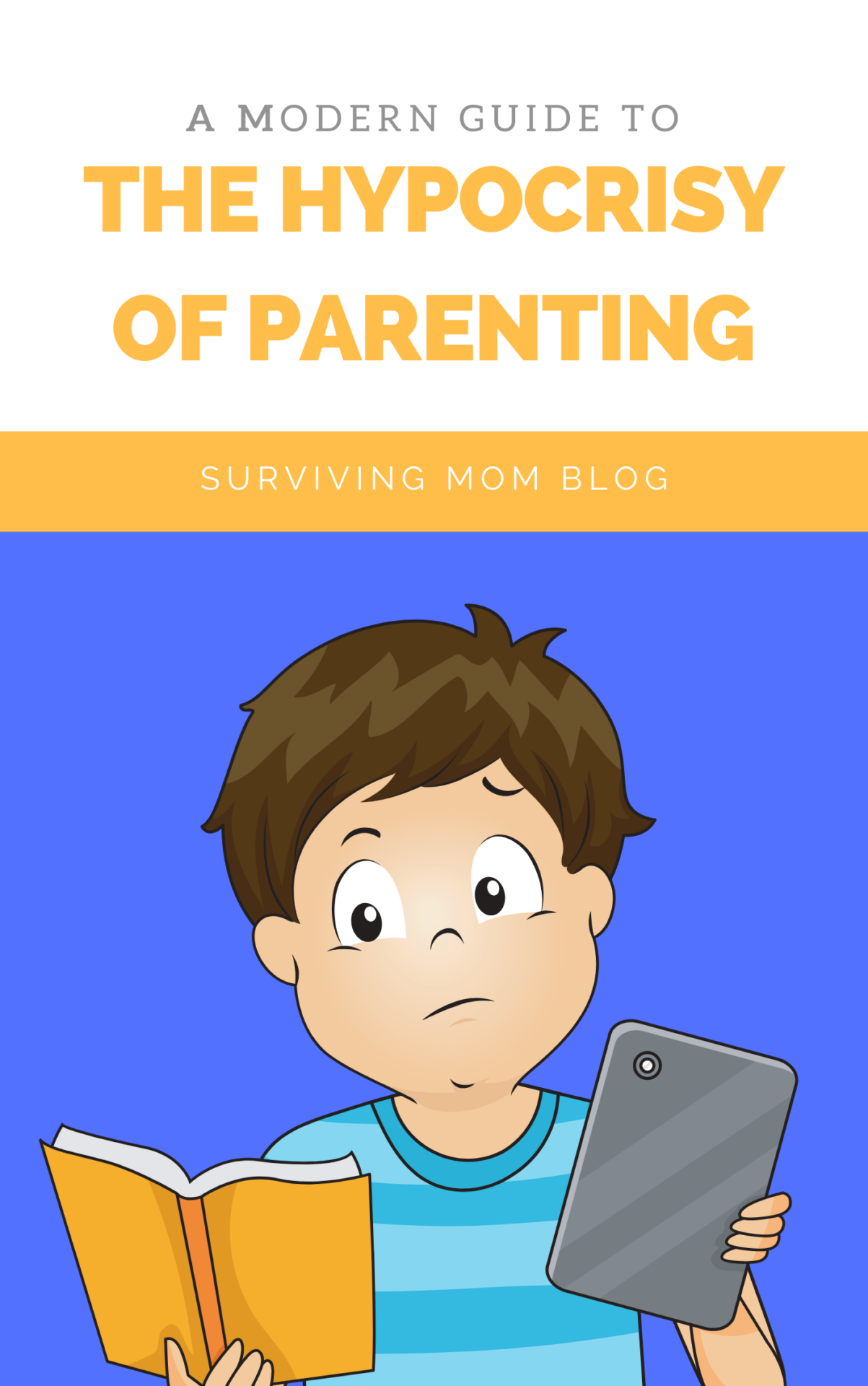
Our job as parents is to support and guide our children through life. That is no easy task. We are constantly questioning what is best for our children. However, despite our best intentions, there are times when we do not follow the golden rule of treating our children like we would like to be treated. This is where the hypocrisy of parenting comes in.
I believe that we are all guilty of unintentional hypocrisy. We may send mixed messages, ignore our child’s opinions, or have a separate set of rules for ourselves than our children. These actions can make children feel confused and unsure of how they should act in the world.
Before I go any further, I want you to know that this is something that every parent does.
I am by no means trying to make anyone feel badly about themselves or their parenting skills. Parenting is hard enough as it is. We are often consumed with guilt, which only gets amplified because of a world that often shames our choices. That said, we can always strive to learn and grow as parents. My hope is that this article brings awareness to allow some room for growth. No mom shaming is being written by me. Ever.
I am guilty of many (if not all) of the examples written below. With that said, our children are very much aware of the double standards that we set for ourselves and for them. We will always make mistakes as parents, but my hope is that we can learn from those mistakes, while giving ourselves compassion.
The Hypocrisy of Parenting: 8 Confusing Messages We Send Children
(1) Kids aren’t allowed to have bad moods.
There isn’t a person on the planet who hasn’t had a bad day. Sometimes there is no explanation. Other times it is situational. It may be that we didn’t get enough sleep the night before. Our boss was unfair to us. Our spouse didn’t appreciate the effort we put into cleaning the house. A person stole our parking spot. We all feel cranky sometimes. Sometimes it just has to run its course.
Children are no different. They will experience bad moods, frustration, crankiness, and/or acting ornery. This is where the hypocrisy of parenting comes in. We expect others to show us compassion and empathy when we are feeling “off” or when we had a bad day. Yet when kids get cranky, we usually tell our children to stop. We inform them that it isn’t okay to be grumpy. If there is a cause, we may try to help our children through it, but eventually we will reach a point where we tell our kids that enough is enough. We are not going to put up with their attitude.
Just as we need to sometimes ride the wave of whatever it is we are feeling, so do our kids. Kids are allowed to have bad moods and bad days, just like us. The hypocrisy of parenting is when we don’t give our children space to feel that way.
(2) WE INSIST OUR CHILDREN CLEAR THEIR PLATE WHEN THEY SAY THEY ARE FULL
As adults, we are able to stop eating when we feel full. Yet there have been many times my daughter says she is full, and I insist she eats everything before getting up from the table.
I understand that some kids will claim they are full as a tactic to skip dinner and go straight to dessert. That is a different story. However, if a child insists they are full and doesn’t want any more food (dessert or otherwise), why do we tell them they need to keep eating?
It is important to keep in mind that not allowing kids to make these types of decisions can lead to problems in adulthood. In fact, this hypocrisy of parenting can lead to obesity for children when they get older because they develop an inability to control their apatite properly (dailymail.co.uk, 2020) .
(3) We don’t try to understand why our kids are acting out of control.
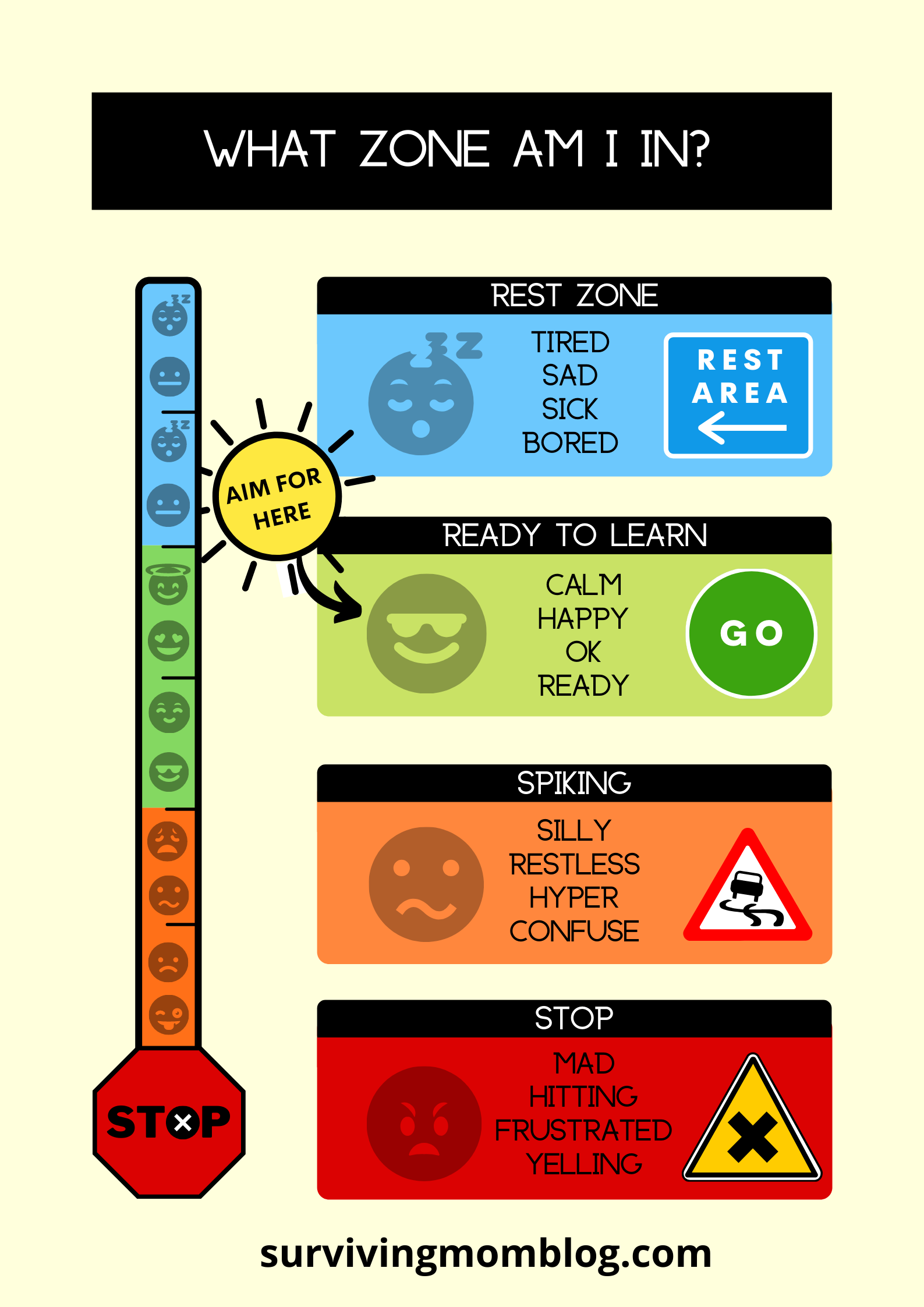
It is often difficult for kids to express themselves. As a result, children are prone to temper tantrums due to the frustration of being unable to articulate their feelings. They also lack the skills to emotionally regulate themselves. If you think about it from their perspective, wouldn’t you get out of control if were unable to explain how you were feeling? Heck, many adults struggle with expressing their emotions.
Temper tantrums are grating on even the most patient of people. However, if we take the time to understand WHY our toddlers are throwing a tantrum, it can make it easier for both parents and children. Instead of trying to get our children to stop, what if we took a moment to take a deep breath, and tried to understand what the cause was of the tantrum? Perhaps it was exhaustion. Perhaps they felt frustrated because they lost their favorite toy. Whatever the reason, young children or children who have difficult expressing themselves have the same feelings as we do- they want to feel understood.
The hypocrisy of parenting takes place when we don’t take the time to understand why our kids are acting out. As grown-ups, if we get extremely frustrated, we want empathy. We want the people we care about to take the time to understand why we are feeling triggered. In fact, a huge part of marriage is taking the time to understand our partner’s triggers and hold space for them. Even if we don’t agree with why someone is acting a certain way, we do our best to respect their feelings. Children deserve the same treatment.
(4) We rush to judgment.
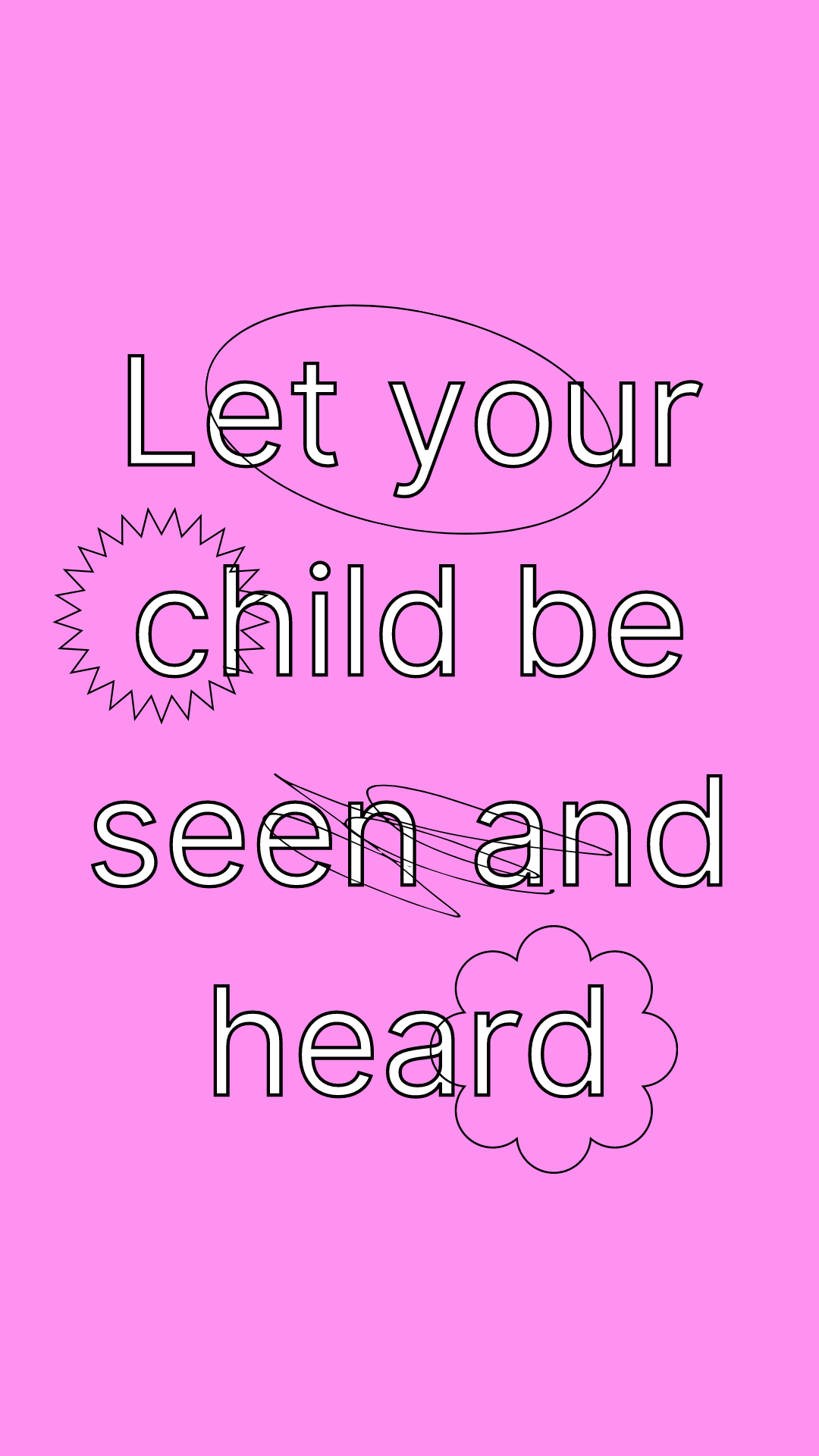
I get angry when I feel judged. I am sure you do too. We all deserve the opportunity to be heard. Children deserve that opportunity as well.
Raise your hand if you have gotten mad at your kid for doing something without giving them an opportunity to explain themselves. I’m raising my hand too. What if we didn’t rush to judgment and saw if there was a reason for those actions? We are guilty of the hypocrisy of parenting when we jump to conclusions, but we don’t want others to rush to judgment about us.
Again, if your child is doing something outright dangerous or inappropriate, I am by no means advocating that behavior. What I am suggesting is that we are often black and white with our children. There is right and wrong, but we forget that sometimes we need to allow a little bit of grey. Before we jump in to correct or critique our child, perhaps we can give them some space to explain things from their perspective.
I remember a particular time I was guilty of this.
My daughter is not allowed to use paint without permission. I came into the play room and found my daughter painting. I felt my blood boiling that she disobeyed a rule. She was told to immediately put away the paint. After giving me me the saddest look, she put it away and walked into her room. She said nothing.
A few minutes later she came back downstairs. My daughter was crying and told me that she wanted to surprise me with a special picture on a canvas. She tried markers first, but it didn’t look good. She knew she was supposed to ask permission to use the paint, but she couldn’t because then it would ruin the surprise. Let’s just say that I felt like something that should be scraped off the bottom of a shoe after she explained herself.
Did she break a rule? Yes. However, I was quick to rush to judgment and assume she was being defiant. She had very sweet intentions, but I was quick to make assumptions. Had I given her the opportunity to explain herself, I would have handled the situation differently. I would want the chance to explain myself, and she deserved the same.
(5) We don’t let our children openly speak their minds.
As adults, we are supposed to use our voice and be our own greatest advocate. We are guilty of hypocritical parenting when we expect our kids to blindly follow what they are told.
I want to stress that there is a line between arguing/debating versus giving your child a chance to share their perspective. Some things are absolutely non-negotiable in life for all of us. However, as long as a child is being respectful, I believe we should encourage our kids to speak their minds. I think teaching our kids to blindly follow anyone of authority is a very dangerous and slippery slope. If we don’t allow our kids to speak up now, how can we expect them to use their voice as adults or if they are in a compromising situation?
I went to a private school that served pizza on Fridays. In third grade, I realized that they were giving us extremely small slices, yet charging us regular price. Although the people doing this were in a position of authority, I felt what was going on was wrong. I decided to start a petition that we should receive bigger slices. Unfortunately the school did not comply with my request, but I was proud of myself for standing up for what I believed in and taking a stand. Even though I was a child, I felt (and still do) that I should speak my mind.
There have been several times when I have said something to my daughter and she has suggested or said something that changed my perspective. There are other times when I will listen, but tell her that I am standing by my decision. I want her to know that I care about her opinion, while understanding that giving her a voice doesn’t mean that she dictates how I parent.
(6) We expect our children to immediately drop what they are doing for us.
I do not like to wait for my daughter. When I tell her she should get off of her iPad, finish an activity, etc. I expect her to immediately comply. However, I am absolutely guilty of hypocritical parenting because if my daughter wants my attention, I will usually tell her she has to wait for me.
I’ll take it one step further. When my daughter tries to get me to stop what I’m doing, I will get angry at her for demanding. I am in the middle of something, and I expect her to be patient and wait. So why do I not allow the same for her?
What I’ve started doing is giving her notice that I’d like her to finish up what she is doing. Obviously if there is an urgent matter, she is expected to stop immediately (just as I would do under the same circumstances). Otherwise, I let her know in advance and will give her ten minute, five minute, and one minute notice. Similarly, I will typically ask for ten minutes to finish something up. If either one of us need more time, we let the other one know.
(7) We Don’t Let our children make their own decisions.
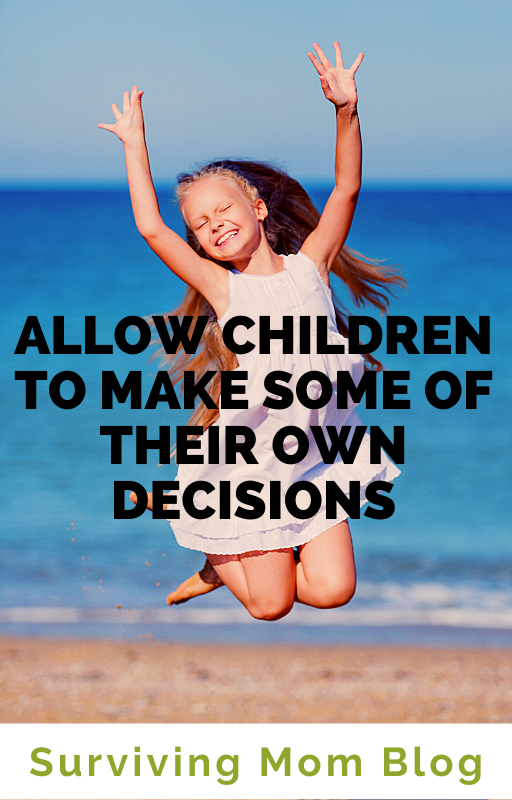
For example, many of us enroll our kids in extra-curricular activities. Have you ever enrolled your child in an activity without asking your kid which one they’d prefer to do?
I had a neighbor who loved baseball. He told me he dreamt of being a professional baseball player, but he wasn’t good enough. From the time his sons were young I would watch him practicing with his sons in the street. I remember one day commenting to the older son that he must really love baseball. His response was, “Not that much, but my dad really does”.
Some of us are guilty of thinking that just because we like something, we think that our children should feel the same way. We forget that our children are their own individuals with their own likes and dislikes. Just because our dream was to be a doctor, doesn’t mean our children are going to be doctors. We should not project our hobbies and aspirations onto our children.
(8) we trivialize their feelings.
If something is important to me, I want my opinions and feelings to be acknowledged. However, if we feel our kids are upset about something that we deem “silly”, we will often minimize their feelings and say it isn’t a big deal.
We need to remember that kids deserve respect too. They deserve to have their feelings validated no matter what. We sometimes fall into the hypocrisy of parenting when we feel our kids are blowing something out of proportion, so we tell them to let it go. Our kids deserve to feel that it is safe and encouraged to express their feelings no matter what. We may think they are blowing things out of proportion, but we have no right to tell our kids how to feel. I know I wouldn’t want to be told my feelings were silly.
The hypocrisy of parenting is something we all are guilty of doing. So often, we do not treat our children the way we would want to be treated. We must stop holding our children to a higher standard than we can attain ourselves.
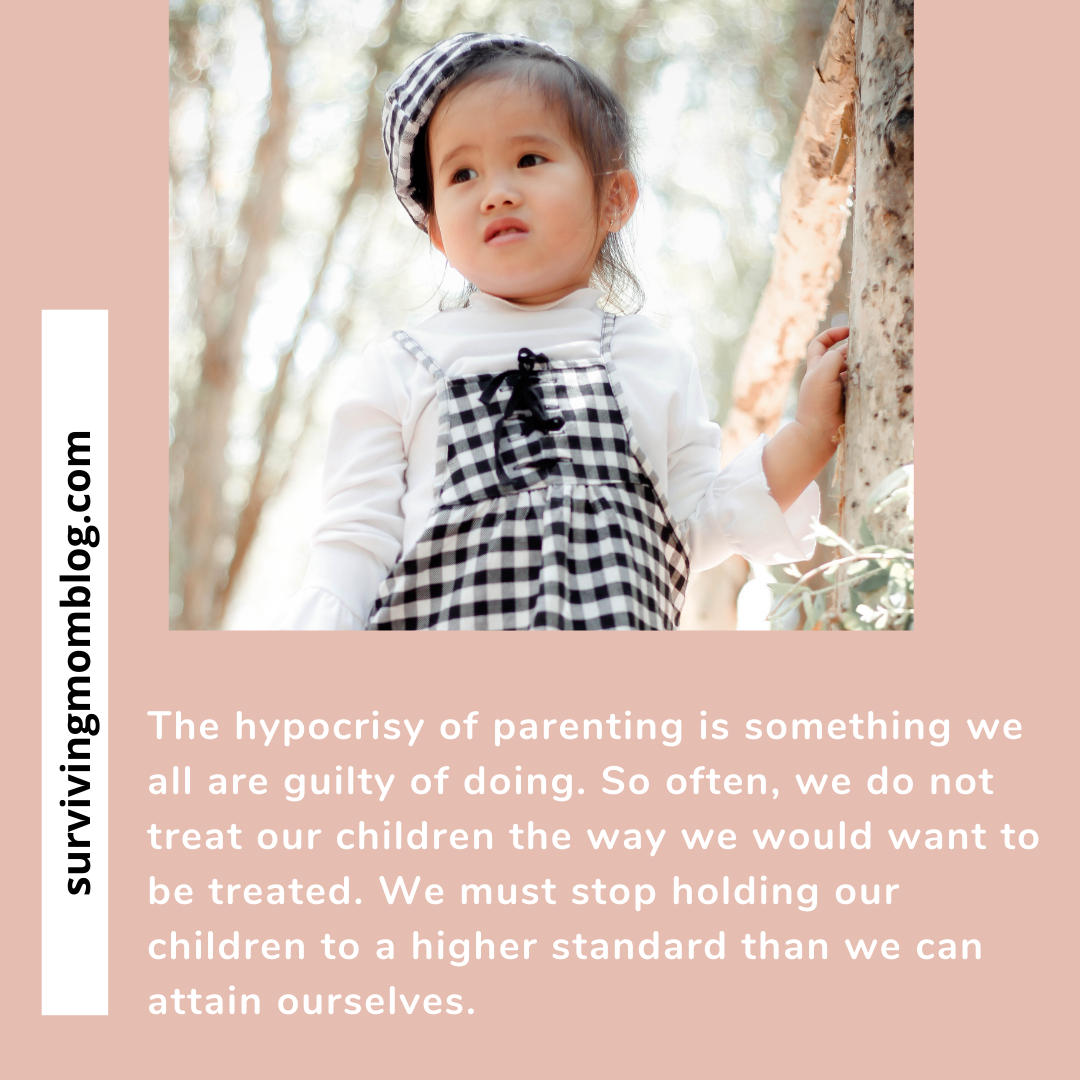
Disclaimer
This post may contain affiliate links. If you purchase a product via my link I may receive a small commission at no additional cost to you. Please visit our disclaimers here

Naomi P Lane says:
Emotional self-regulation is a huge topic in education right now. Using the zones to help kids express how they are feeling is a great starting place. You are right that we often forfeit compassion for control in the heat of the moment. I am as guilty as anyone of this. We all have moments of parenting shame that we soon wish to forget. Just being aware of these issues you discuss is a step in the right direction though.
Randi says:
I wrote a prior post about emotional regulation tools because it is so crucial. It is a skill that both children and adults need to learn, as many of us did not learn healthy coping mechanisms as children. We are all guilty of many of these examples, like you said, but I completely agree that awareness is a great first step towards implementing change.